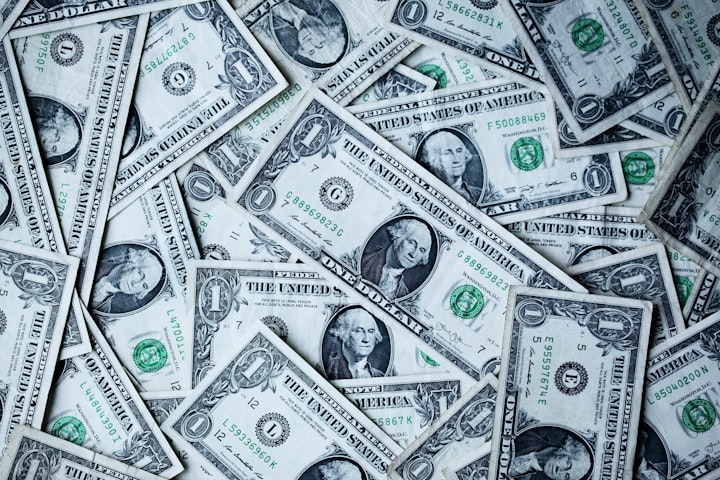Unethical Tax Breaks and a Broken Economic System
Why don't successful companies start paying their fair share?

Perfection only exists in theory, but that doesn’t mean we can’t strive for better. Most Americans, especially young people, believe our economic system is broken—and that the brokenness transcends political parties. While it might be for different reasons, members of both the right and the left take issue with the massive corporations that dominate our lives. Of course, to achieve anything productive, you would have to convince them to stop hating each other long enough to talk about it. I could easily spend hours about the realigning of Democrat’s and Republican’s bases and the fact that most politicians have no clue it is happening. But that is not my intent with this article. My intent is to make a point about the America economic system, specifically tax breaks.
My position is simple. Tax breaks for specific companies are unethical and we as voters should elect politicians who remove them from the books. I’m not opposed to industry-wide tax breaks, only to tax breaks that apply to a few specific companies. The first reason is that they create an extra barrier to entry. It hardly matters how great your ideas for a business or products are if they stay stuck in your head. A barrier to entry is essentially how much money it would take to start competing in a certain market. High barriers to entry favor the wealthy and connected and disadvantage the people whose new ideas we need the most. Think about it like getting a small loan of, say, a million dollars. Most of us don’t know anyone who could give us a loan that big, much less our own dad.
The second reason is that this system of tax breaks is just flat unfair. And ya know, life isn’t fair, but that doesn’t mean we shouldn’t strive to build systems that are as fair as possible. First, it’s not fair to a company’s competitors. Take Amazon for example. While they are certainly easy to use, they compete with basically every business under the sun. Tax breaks and incentives were used to lure their HQ2 effort, along with accusations that Amazon pays significantly less taxes due to large tax loopholes. I especially like the title from this article, “Why are local governments paying Amazon to destroy Main Street?” While this was all going on they were underpaying delivery drivers and lying to them about it. Not very confidence inspiring, is it? No matter what flag they wave or what they tweet, massive corporations are not magically ethical overnight.
So, a small business owner is competing with Amazon, and they can’t afford to hire teams of tax lawyers to make sure they exploit every tax loophole. However, if their business is successful enough that they are paying taxes, they could very easily be paying more in taxes than Amazon. Is it fair that this business owner is contributing a larger percentage of his income to society through taxes than a company that is so close to becoming a monopoly?
I’ll stop harping on Amazon and instead target another area where tax breaks unfairly affect citizens. This Brookings article explains it better than I can, but the TL:DR version is that you can pay taxes that end up building a stadium for a sports team that is hours away from your home. While we can’t pay all the people in society who deserve it like Lebron James, I certainly think he could avoid taking money away from those deserving people to help build stadiums.
The third way that the current system of tax breaks is unethical is that they put too much leverage in the hands of politicians. Now maybe you’re one of those rare Americans who doesn’t believe politicians are the scum of the earth. Do you want to rely on the innate goodness and moral fiber of politicians to not misuse their leverage over specific companies? Here is a good example: Georgia house votes to strip delta of 35 million tax credit for election law statements.
Personally, I believe that if companies want to speak on social issues, they should be prepared for financial blowback. However, the government should never have tools to discourage freedom of speech, with the sole exception of national security. Tax breaks are a tool they can use to suppress free speech, and it should be taken away from them.
Why should tax breaks or “loopholes” be included in the law? Ideally, they are incentives to grow the economy. That is a laudable goal. I’m not opposed to tax breaks as a whole. I’m against a complicated tax system that requires teams of lawyers to navigate, and I’m against treating specific companies differently because they happen to have friends in Congress. Our tax system should be simple, even for a multinational corporation.
Capitalism is the best economic system our world has ever seen, and pairs exceedingly well with constitutional republics and democracies. However, sustainable capitalism must be ethical, or it just becomes a different version of a state-run economy. Russia and China are two examples of countries that have state-run capitalism, and all it takes is five minutes of research to know that neither country is ethical in the slightest. Good governance requires checks and balances, and so do good economies. As citizens and consumers, we are the ultimate check on both politicians and businesses. Forgetting that and trusting them to self-regulate has gotten us into the current over-complicated, corrupt, stupid mess we are in.
About the Creator
Farah Thompson
A writer just trying to make sense of a world on fire and maybe write some worthwhile fiction.






Comments
There are no comments for this story
Be the first to respond and start the conversation.